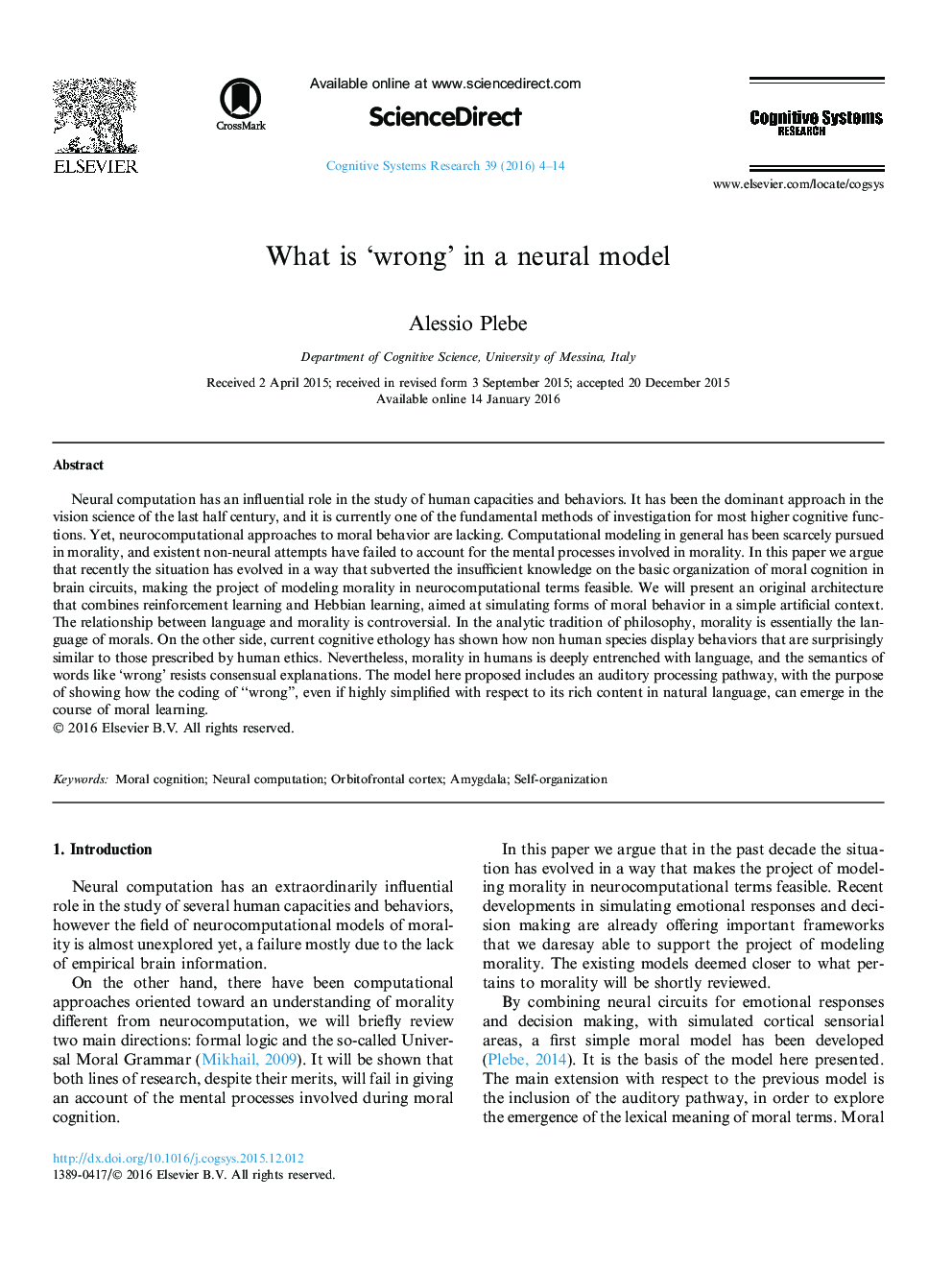| کد مقاله | کد نشریه | سال انتشار | مقاله انگلیسی | نسخه تمام متن |
|---|---|---|---|---|
| 378362 | 659142 | 2016 | 11 صفحه PDF | دانلود رایگان |
Neural computation has an influential role in the study of human capacities and behaviors. It has been the dominant approach in the vision science of the last half century, and it is currently one of the fundamental methods of investigation for most higher cognitive functions. Yet, neurocomputational approaches to moral behavior are lacking. Computational modeling in general has been scarcely pursued in morality, and existent non-neural attempts have failed to account for the mental processes involved in morality. In this paper we argue that recently the situation has evolved in a way that subverted the insufficient knowledge on the basic organization of moral cognition in brain circuits, making the project of modeling morality in neurocomputational terms feasible. We will present an original architecture that combines reinforcement learning and Hebbian learning, aimed at simulating forms of moral behavior in a simple artificial context. The relationship between language and morality is controversial. In the analytic tradition of philosophy, morality is essentially the language of morals. On the other side, current cognitive ethology has shown how non human species display behaviors that are surprisingly similar to those prescribed by human ethics. Nevertheless, morality in humans is deeply entrenched with language, and the semantics of words like ‘wrong’ resists consensual explanations. The model here proposed includes an auditory processing pathway, with the purpose of showing how the coding of “wrong”, even if highly simplified with respect to its rich content in natural language, can emerge in the course of moral learning.
Journal: Cognitive Systems Research - Volume 39, September 2016, Pages 4–14
